What If Churchill Had Died In 1931?
Churchill was no longer the significant political figure he had been in the preceding decades. From Home Secretary, First Lord of the Admiralty, and Chancellor of the Exchequer, he was now, by his standards, an impecunious writer and not much else.

His death in a New York road accident was reported and he was mourned, but it was the passing of one who has already had his day.
Flash Forward
It was May 1940. Germany had invaded Belgium, France, Luxembourg, and the Netherlands. Prime Minister of the United Kingdom Neville Chamberlain was forced to resign. In his place, and with very little debate or demurral, Lord Halifax took his place at No. 10 and lead the country from his seat in the Lords.
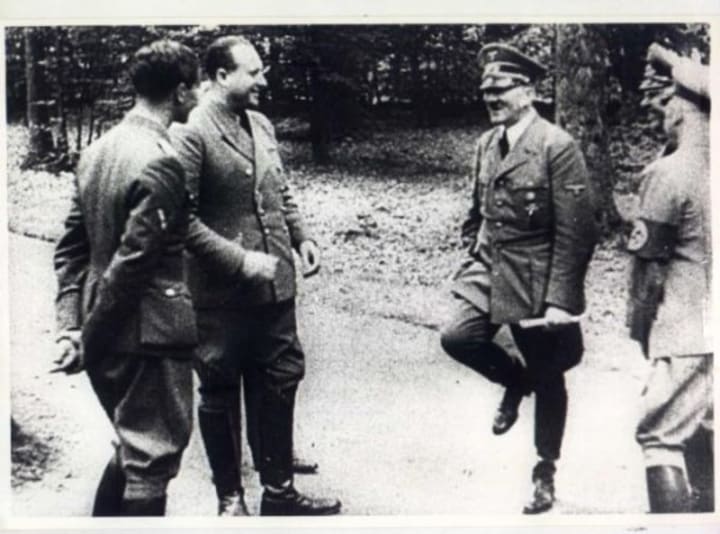
In the years leading up to Hitler's War, no one of any note or clout had warned of Hitler's impending threat. No British statesman of either major party had done anything other than back appeasement to the hilt, and in the wartime coalition government formed by Halifax, there was still a strong attachment to the strategy.
With France wiped out, Britain stood alone, her knees knocking collectively together. It seemed likely that Hitler would invade and that Britain would be unable to stop him.
Rather than lose its first war since 1783, indeed, rather than lose her sovereignty, the British put out peace feelers.
Hitler was only too happy to comply. With his sights set on the East and with Britain at the very least neutralised, his war aims were being achieved with astonishing swiftness.
The Armistice

It was with some reluctance that the British travelled to Compiegne under a flag of truce. Halifax had held out for a far less significant locale for the signing of the Armistice, but in the end, with no bargaining chips, he was forced to send his Foreign Secretary to the same railway carriage in which Hitler had so recently humiliated the French.
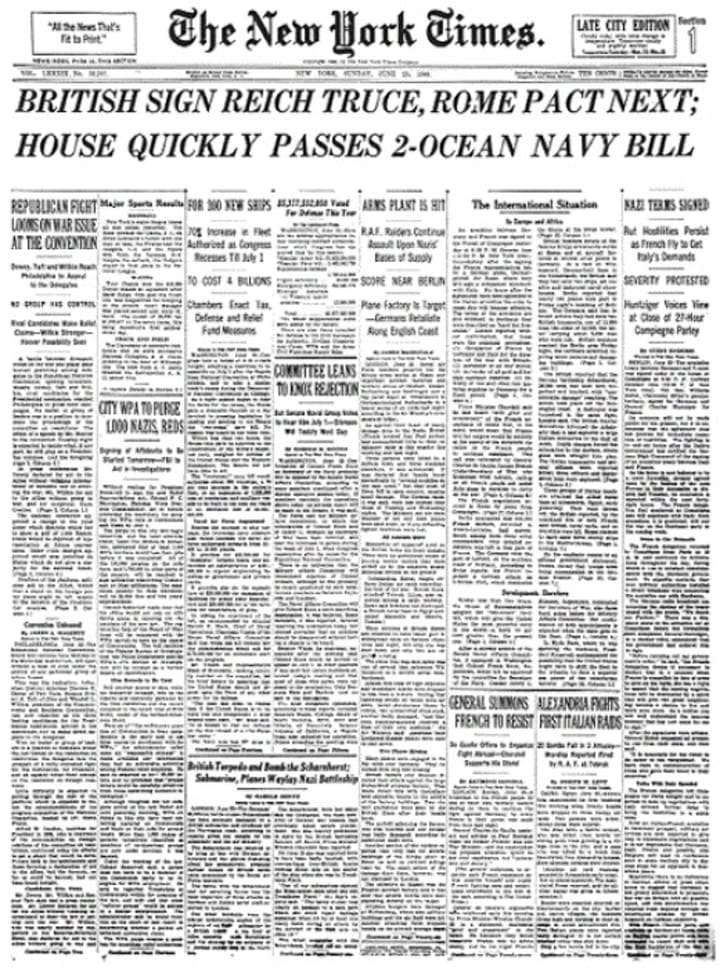
Less humiliating were Hitler's terms:
- Complete neutrality in the case of the European war.
- A non-aggression pact.
- The return of Germany's African colonies.
And that was it. The British suffered no reversal other than in its prestige. Indeed, a codicil at the end of the armistice document proclaimed that the Fuhrer was "confident that the British Empire will remain of greatest world-historical importance," while the Reich would "pursue its own self-evident destiny."
Barbarossa
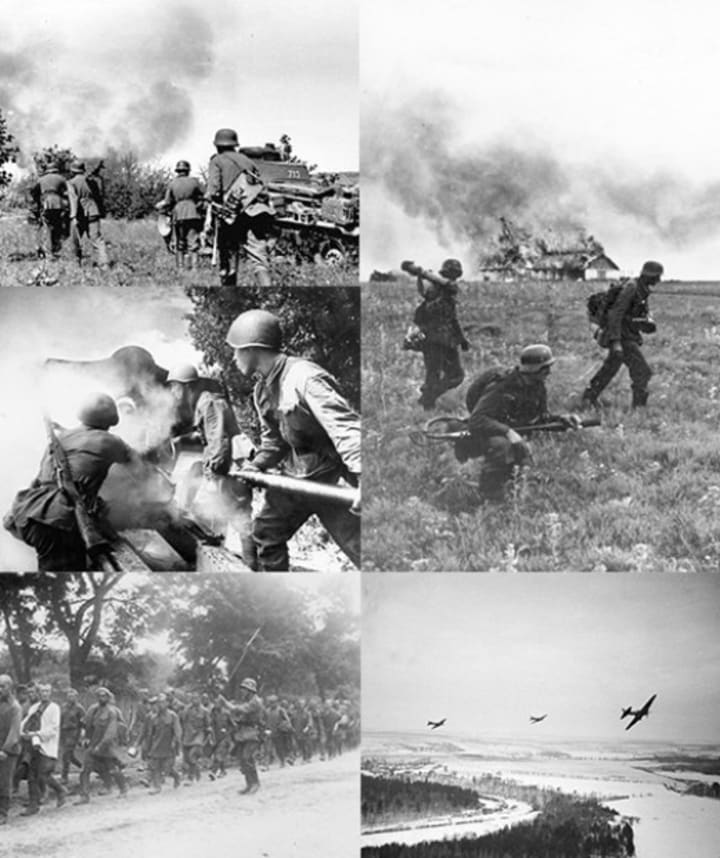
On 15 May the following year, Hitler invaded the Soviet Union.
Despite an unexpected call on Hitler's armies (Mussolini had invaded but not conquered Greece the preceding year), with the Atlantic frontier secure, Hitler had divisions to spare as he fell upon the shocked and ill-prepared Soviets.
Despite Stalin's initial withdrawal, he reemerged to start a fightback.
It was hopeless. Most of the air force had been destroyed, and although there would be more than enough troops and armaments to throw at the enemy, assembling the armies and manufacturing the tanks would take time.
All there was time for was a massive evacuation. While insurgents did their best to delay the Nazi onslaught, the Soviets began to dismantle their industrial base and ship it to the east. Behind the relative security of the Urals, it would be rebuilt and restocked. The rest of Russia was abandoned.
The new 'frontier' East and west of the Urals—Barbarossa completed.
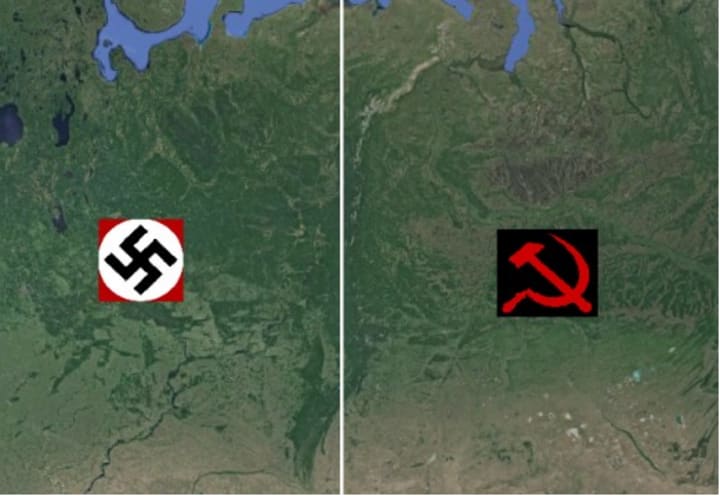
Post Barbarossa
From the immediate time of Hitler's victory east of the Urals, Europe was finally more or less at peace. The Soviet Union remained, severely shrunken and in peril from both Germany and Japan.
The latter, already embroiled in its own war in China, chose a north-eastern rather than a south-easterly strategy, consolidating its hold on Manchuria and building up its forces on the Soviets eastern border.
The Pacific remained just that—pacific.
The World was at peace. The Jews were to be deported to Africa as slave labour while the Slavs stayed put and toiled away in much the same way they had under Stalin.
In the east, the Soviets consolidated but without the bread basket of the Ukraine and no imports from outside, the country more or less starved. While enough was found to maintain the meagre agriculture and man the renascent armies and industries, that was it and a vastly enfeebled Soviet Union waited for a long siege, beating off some Japanese incursions but more or less surrendering the rich mineral wealth of eastern Siberia to Nippon.
Industrial, Technological and Military Developments
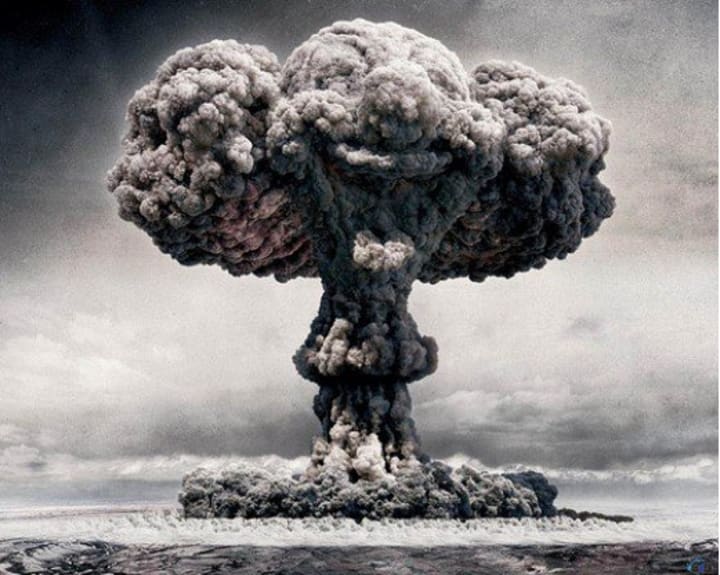
Without actual war, but with the impetus already acquired, the military industrial complex, worlwide, proceeded apace with the technological innovations with which they had been experimenting before the 'peace.'
The British perfected their radar and had soon produced an atomic bomb, followed shortly by the U.S., and then, most surprisingly, by the Soviet Union (not so surprising when it was revealed that the Cambridge and other British spies had kept their comrades well informed).
Astonishingly, and perhaps thankfully, Hitler was the second to last to actually perfect the Atomic bomb (Japan soon followed), partly it is thought because of his insistence that it be borne aloft on a rocket. That aside, the greatest stumbling block had been the almost ludicrous overestimation of the required size of the Uranium core. Rather than the one-meter diameter sphere envisaged, the core needed only to be the size of an orange. World Domination might have been Hitler's had the coincidence of rocketry and atomicry been achieved a little earlier.
It is probably thanks to the British 'traitors' that the Soviet Union persisted in any shape, frame or form, for there can be little doubt that Hitler would have extinguished the Soviets in a nuclear firestorm, had not the newly emboldeneded, atomically armed powers made clear their disfavour. The Soviet Union alone could not have hoped to outgun the Nazis in an Atomic war—but with the capabilities of the Atlantic Alliance, Hitler was at a significant disadvantage and any attack might well mean the destruction of the German Homeland.
For some, it felt like September 1939 all over again with the world trembling on the abyss.
This time however it would be naked power, held in check, that would determine whether or not the world would be at peace or at war
Afterthought
The Second World War—estimates of total dead range from 50 million to more than 80 million.
The 'Hitler' War—estimates of about 27 million.


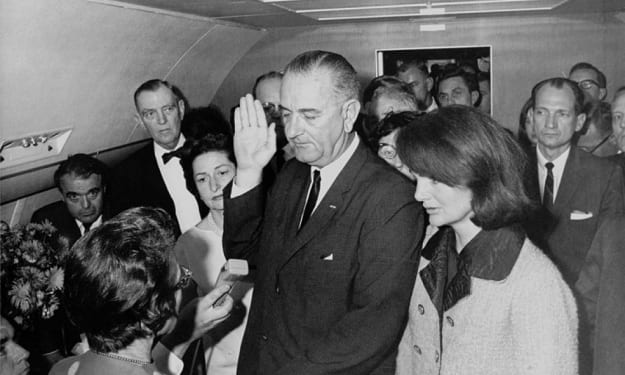



Comments
There are no comments for this story
Be the first to respond and start the conversation.